The oncologist's feelings when informing the patient that treatment must stop
In the oncology clinic, the conversation is not always about protocols and test results.
There are days when the hardest part is not deciding on treatment, but figuring out how to tell patients and their families that medicine has run out of options. For oncologists, that is a heavy moment.
MSc. Dr. Nguyen Duy Anh - oncology specialist said, each patient is a person with their own incompleteness.
“I once had a 19-year-old patient diagnosed with soft tissue sarcoma, a rare and aggressive form of cancer.
The patient was admitted to the hospital when the disease was already advanced. My team and I still decided to aggressively perform chemotherapy and radiotherapy, closely following each cycle.
After 6 months, the disease did not respond. Once, while infusing, the patient shared with me: 'I wish I had one more year to go to school and take my mother on a trip .'
"Two weeks later, I had to tell my family that we could no longer intervene. That was an extremely heavy moment," Dr. Duy Anh shared.
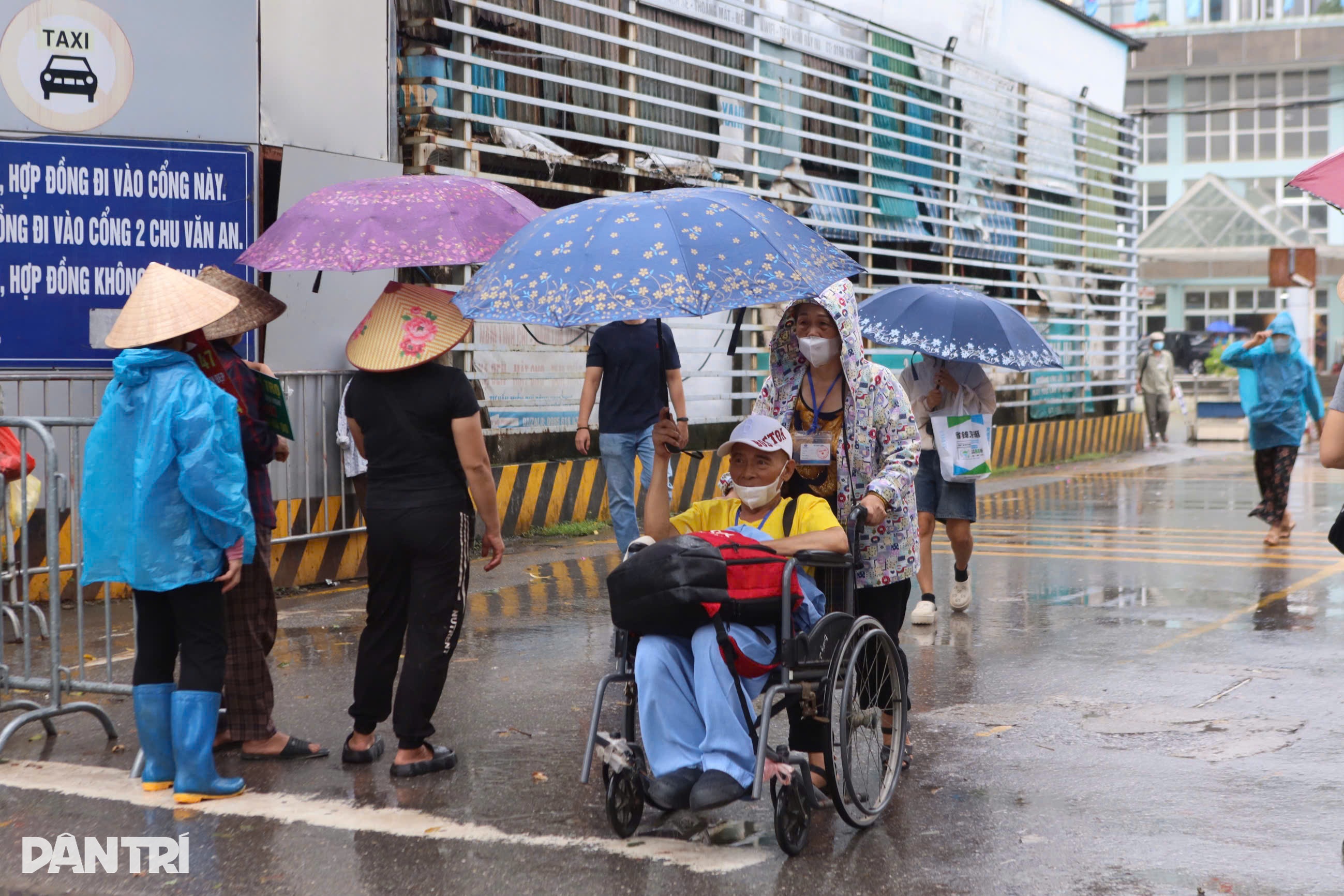 New signals from personalized mRNA vaccine (Enteromix) meet the expectations of "right target, less toxicity" of cancer patients and doctors (Photo: Bao Ngoc).
New signals from personalized mRNA vaccine (Enteromix) meet the expectations of "right target, less toxicity" of cancer patients and doctors (Photo: Bao Ngoc).
From such helpless moments, any signs of medical progress, especially promising directions to reduce toxicity and personalize treatment, are closely watched by experts.
News about Russia's personalized mRNA vaccine - Enteromix in the past few days has attracted special attention, it meets the expectations of "hitting the target, reducing toxicity" of cancer patients and doctors.
According to WHO, each year Vietnam records about 165,000 new cases and 115,000 deaths from cancer. Common cancers include liver, lung, stomach, breast and colorectal cancer... There are people as young as 20 who have colorectal cancer.
Russian cancer vaccine is a step forward, but more data needed
Sharing with Dan Tri reporter , Dr. Duy Anh said that Russia's announcement that it is ready to use a cancer vaccine and is waiting for the country's Ministry of Health to approve it for clinical use is a very remarkable step forward in the field of cancer treatment.
According to Dr. Duy Anh, the concept of cancer vaccines is not new, but is still in the process of testing and development. There are currently two main types:
Preventive vaccines: Such as HPV vaccine (to prevent cervical cancer) or hepatitis B vaccine (to prevent liver cancer). These have been widely used.
Therapeutic vaccines: Aim to activate the body's immune system to recognize and destroy formed cancer cells. This is a challenging approach and is in the clinical trial phase in many countries (USA, Japan, Germany, China...).
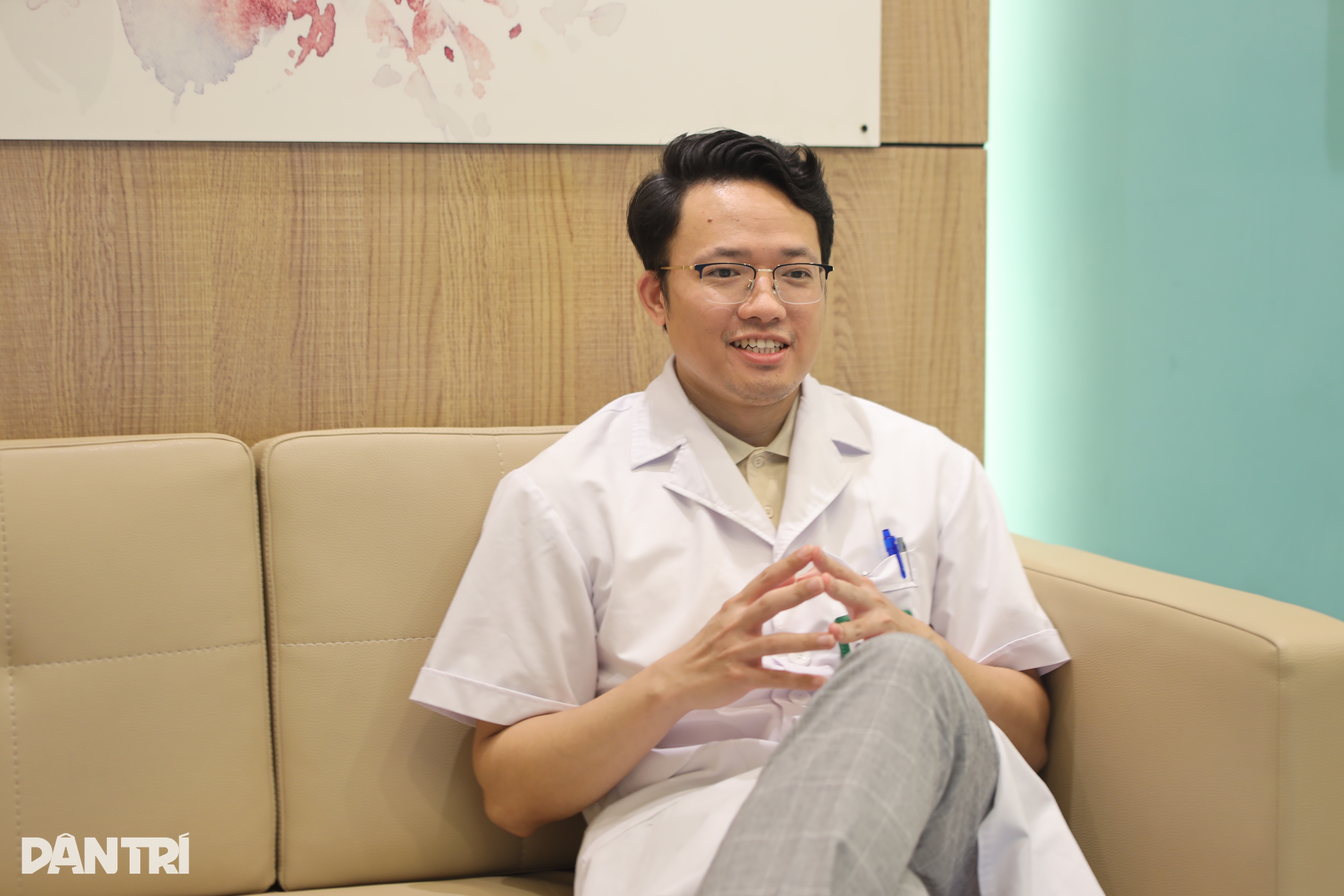 According to Dr. Duy Anh, Russia's announcement that it is ready to clinically use a cancer vaccine is a remarkable step forward (Photo: Bao Ngoc).
According to Dr. Duy Anh, Russia's announcement that it is ready to clinically use a cancer vaccine is a remarkable step forward (Photo: Bao Ngoc).
“For a cancer vaccine to be considered 100% effective, there needs to be clear clinical evidence, through multiple phases of trials with large sample sizes, multi-centers and long-term follow-up.
In medicine, especially in the field of cancer, the claim of “100% effectiveness” should always be approached with caution, because the nature of cancer is very complex and diverse and there is no single therapy that can be applied to all patients,” Dr. Duy Anh informed.
Dr. Duy Anh shared that if the preclinical results and phase I and II trials are effective, this is a positive signal.
“However, to apply widely, there must be phase III with a large sample size, comparison with the standard regimen and long enough follow-up,” Dr. Duy Anh emphasized.
Along with expectations, scientists need more data to verify the sustainable effectiveness of the Enteromix vaccine (Photo: Arizona State University).
Dr. Dhiren Bhatia, a former advisor to the World Health Organization (WHO), also noted: “The phase I trial only included 48 patients. This phase mainly evaluates safety, not long-term effectiveness. We need more data on survival rates, disease progression, and outcomes after 6-12 months.”
According to information from the Russian Federal Biomedical Agency (FMBA), the vaccine will be used first for colorectal cancer.
According to the agency, in addition to colorectal cancer, patients with lung, breast or pancreatic cancer may also benefit from this vaccine.
Immunocompromised patients who cannot tolerate conventional therapies are a group of patients who may benefit from this vaccine.
Cancer treatment in Vietnam: Surgery - chemotherapy - radiation are the "pillars"
In cancer treatment in Vietnam today, the standard regimen is still based on 3 standardized methods that have proven long-term effectiveness: surgery, chemotherapy and radiotherapy.
In addition, modern approaches such as targeted and immunotherapy are opening up more options, with rich potential but with practical constraints regarding biological indications, costs and response rates.
Traditional methods (surgery, chemotherapy, radiotherapy) are still the "backbone" of most regimens.
According to Dr. Duy Anh, the three methods of surgery, chemotherapy and radiation are effective in the early stages, but they wear down the patient both physically and mentally (Photo: Getty).
According to Dr. Duy Anh, the advantages of traditional methods have been researched and applied for decades, especially in the early stages.
However, these methods cause pain to patients due to immunosuppression, nausea, hair loss and sometimes have limited effectiveness in metastatic or resistant tumors.
Dr. Duy Anh informed that targeted therapy affects specific molecules/mutations of cancer cells, thereby having high selectivity and toxicity that is often lower than chemotherapy.
"However, the limitation is that it is only effective when there is a suitable mutation. Depending on the disease, only about 10-30% of patients respond," said Dr. Duy Anh.
Modern methods improve the quality of treatment but come at a high cost and only ~20–30% of patients respond to treatment (Photo: Getty).
For immunotherapy, the immune system is activated to recognize and destroy cancer cells.
"Typical immune checkpoint inhibitors such as PD-1, PD-L1... The advantage is that they can bring about durable responses in some diseases (melanoma, lung cancer...).
However, this method is very expensive, the response rate is not high, usually only 20-30%, and the risk of autoimmune side effects can affect multiple organs," Dr. Duy Anh informed.
Dr. Duy Anh said that Russia's Enteromix vaccine is considered a step forward in terms of science and personalization.
"The mechanism of this vaccine is to use genetic information from the tumor itself to design specialized mRNA, thereby training the immune system to accurately recognize and attack cancer cells," said Dr. Duy Anh.
Dr. Duy Anh also emphasized the expected advantages of the vaccine: highly personalized, reduced off-target toxicity, and the ability to coordinate immunity to increase effectiveness.
In particular, this could become a gentler treatment option: simple intramuscular injection, less invasive, less side effects compared to chemotherapy/radiotherapy and towards personalized treatment, suitable for each patient's genetic profile.
To prevent cancer vaccines from becoming a “luxury dream”, we need funding policies, testing and manufacturing infrastructure, and a roadmap to evidence-based guidelines (Photo: Getty).
However, Dr. Duy Anh also assessed the current limitations: complex technology, high cost, production process for each patient takes time, not suitable for urgent treatment situations.
"The biggest challenges are still cost and accessibility. To avoid becoming a "luxury dream", it needs to be accompanied by payment policies, testing infrastructure, production, and a roadmap to include guidelines based on scientific evidence standards," Dr. Duy Anh emphasized.
Source: https://dantri.com.vn/suc-khoe/chuyen-gia-ky-vong-vaccine-ung-thu-cua-nga-xoa-an-tu-them-co-hoi-song-20250910024019819.htm



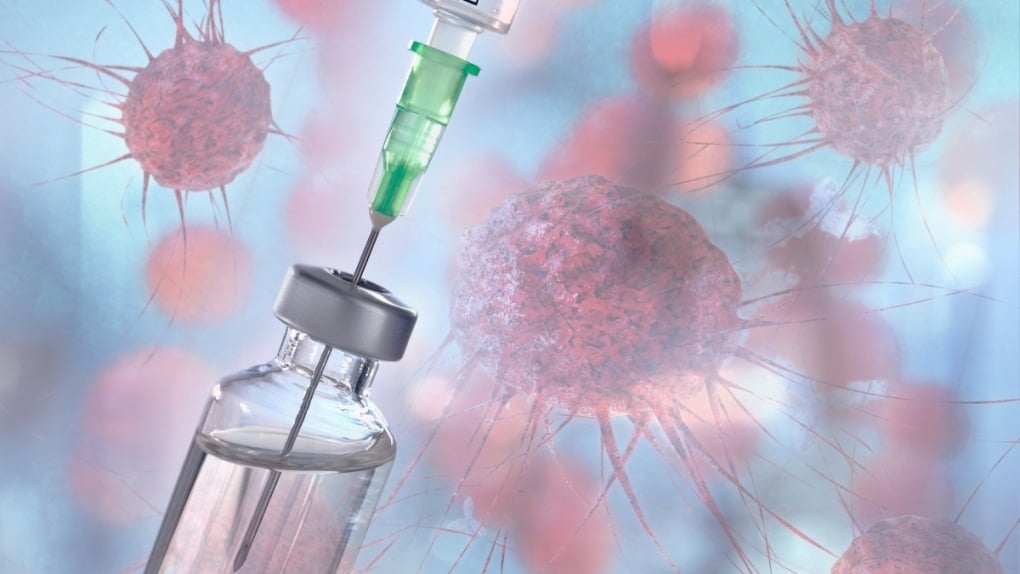
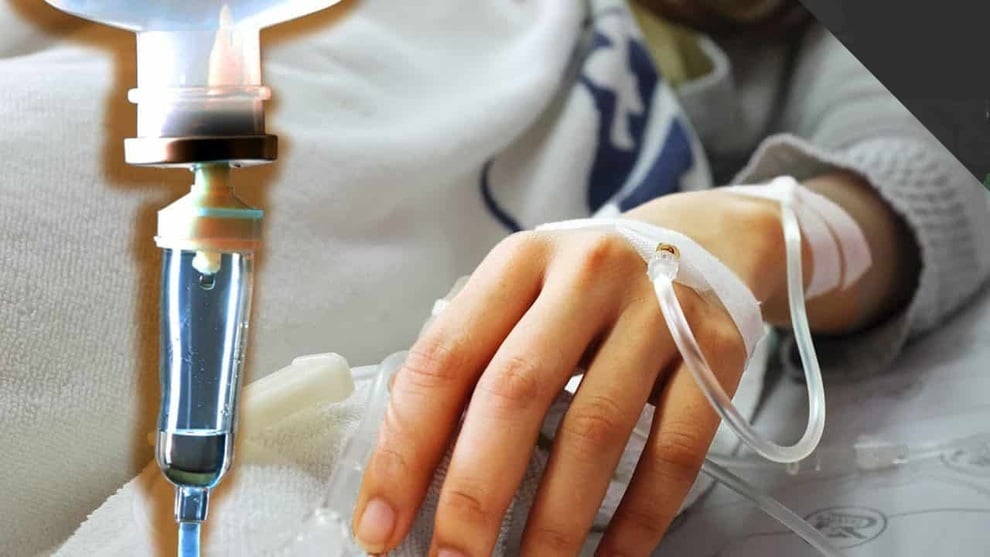
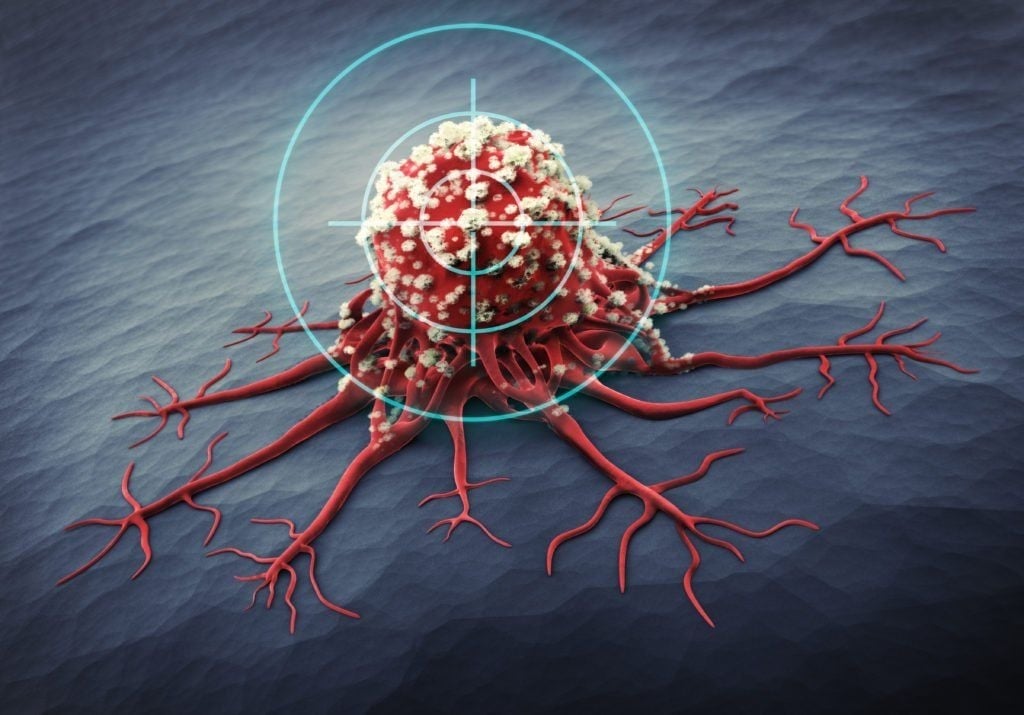
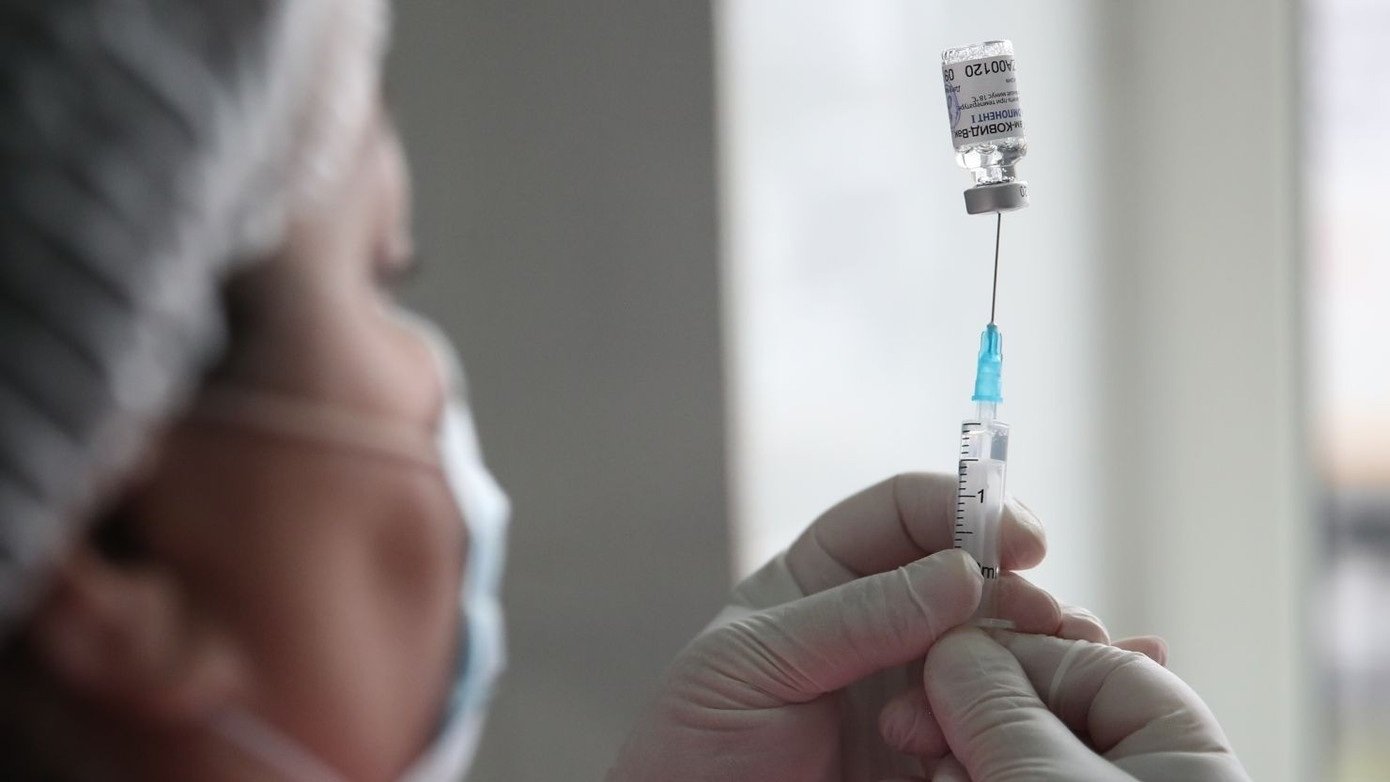
![[Photo] Prime Minister Pham Minh Chinh chairs the 20th meeting of the Steering Committee for important national projects and works](https://vphoto.vietnam.vn/thumb/1200x675/vietnam/resource/IMAGE/2025/9/10/e82d71fd36eb4bcd8529c8828d64f17c)


![[Photo] Giant pipeline leading water to West Lake, contributing to reviving To Lich River](https://vphoto.vietnam.vn/thumb/1200x675/vietnam/resource/IMAGE/2025/9/10/887e1aab2cc643a0b2ef2ffac7cb00b4)

![[Photo] President Luong Cuong hosts state reception for Governor-General of Australia](https://vphoto.vietnam.vn/thumb/1200x675/vietnam/resource/IMAGE/2025/9/10/a00546a3d7364bbc81ee51aae9ef8383)





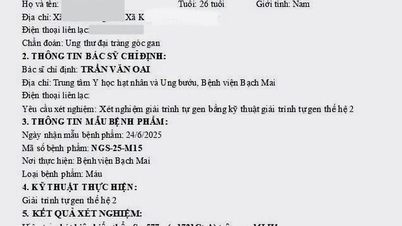





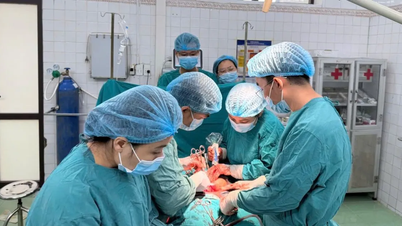


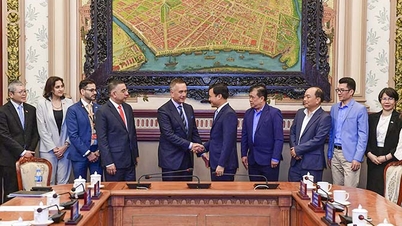






































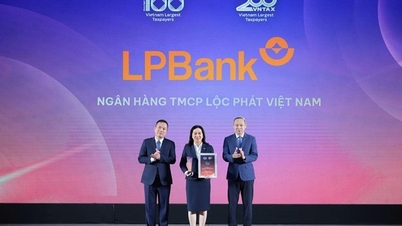













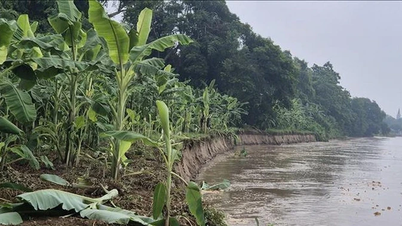





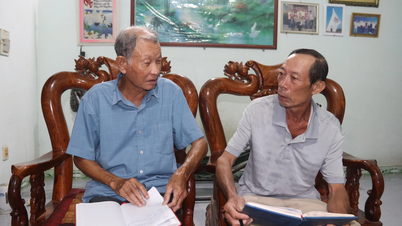




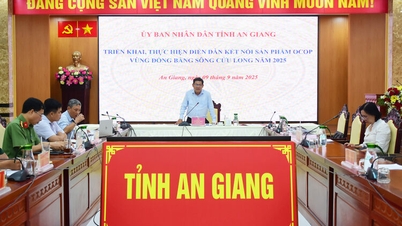











Comment (0)